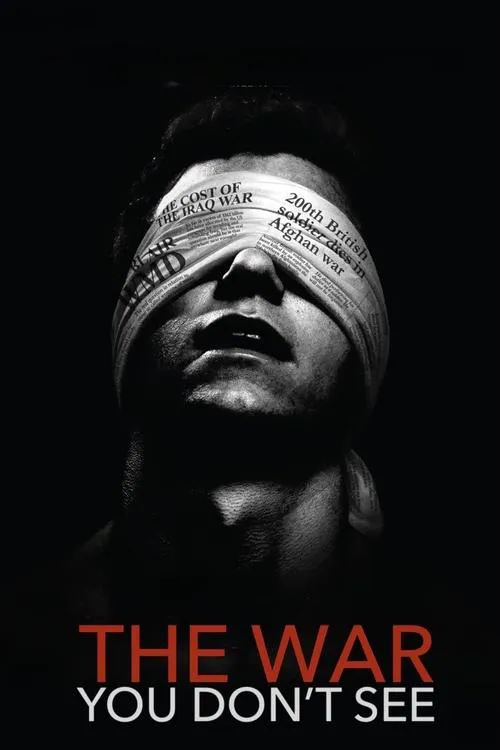The War You Don't See

Plot
The War You Don't See is a 2010 documentary film directed by John Pilger that critically evaluates the way in which the media portrays war and its impact on public perception. Spanning from the First World War to the present day, the documentary sets out to expose the often-hidden truth about the role of the media in reporting war. The film begins by examining the First World War and the way in which it was presented to the public through the media. Pilger argues that the war was initially reported as a heroic endeavor, with journalists and reporters on the front lines praising the bravery and sacrifice of soldiers. However, as the war raged on, the coverage changed, and the human cost of the conflict was increasingly hidden from the public eye. Moving on to the Second World War, Pilger presents a number of examples of how the media was used as a propaganda tool to support military action. He cites the example of Winston Churchill's use of cinema newsreels to shape public opinion and promote the war effort. Pilger argues that this sort of propaganda continues to be used today, often under the guise of objective reporting. The War You Don't See then delves into the Vietnam War, where Pilger himself was a journalist. He recalls the efforts of reporters and editors to get the true story of the conflict onto the front pages, despite heavy censorship and government pressure. Pilger also talks to several journalists who worked in Vietnam, including the legendary news anchor, CBS' Walter Cronkite, who famously declared that the war was unwinnable. The documentary also examines the impact of the rise of television news on war reporting. Pilger argues that the immediacy of TV news has led to a decline in in-depth reporting and analysis, and that the emphasis on dramatic footage has often led to a sensationalization of the conflict. One of the primary criticisms of the film is its lack of objective presentation. Many argue that Pilger's documentary is too critical of the media and does not provide a balanced view of the role it plays in reporting war. Pilger, on the other hand, would argue that the purpose of the documentary is not to provide a balanced view but to expose the truth about the way in which the media manipulates public opinion. The film also delves into more recent conflicts, including the Iraq War and the war in Afghanistan. Pilger argues that the media's coverage of these conflicts has been woefully inadequate, with many outlets failing to question the actions of government and military leaders. He cites the example of embedded journalism, where reporters are provided with access to military units in exchange for promoting a favorable image of the war and its troops. Throughout the documentary, Pilger highlights several notable examples of journalists who have been muffled or worse by governments and corporations. One such example is the late Daniel Pearl, a Wall Street Journal reporter abducted and murdered in Pakistan for his critical reporting of the conflict. In terms of the current state of journalism, Pilger presents an alarming portrayal. He argues that the media is dominated by corporate interests and that the pressure to conform to mainstream narratives is so great that it stifles critical thinking and dissent. He also argues that the increasing reliance on social media and citizen journalism has led to a proliferation of misinformation and sensationalized reporting. Ultimately, The War You Don't See ends on a pessimistic note, with Pilger stating that the media is unlikely to change its ways and report the truth about war. The film concludes by highlighting the crucial importance of independent journalism and the need for a critical and informed public to challenge the dominant narratives of corporate and government-controlled media. Overall, The War You Don't See is a powerful and thought-provoking documentary that challenges viewers to question the way in which the media reports war and its impact on public perception. While some critics argue that the film is too one-sided in its critique of the media, Pilger's arguments are well-researched and thought-provoking.
Reviews
Recommendations


